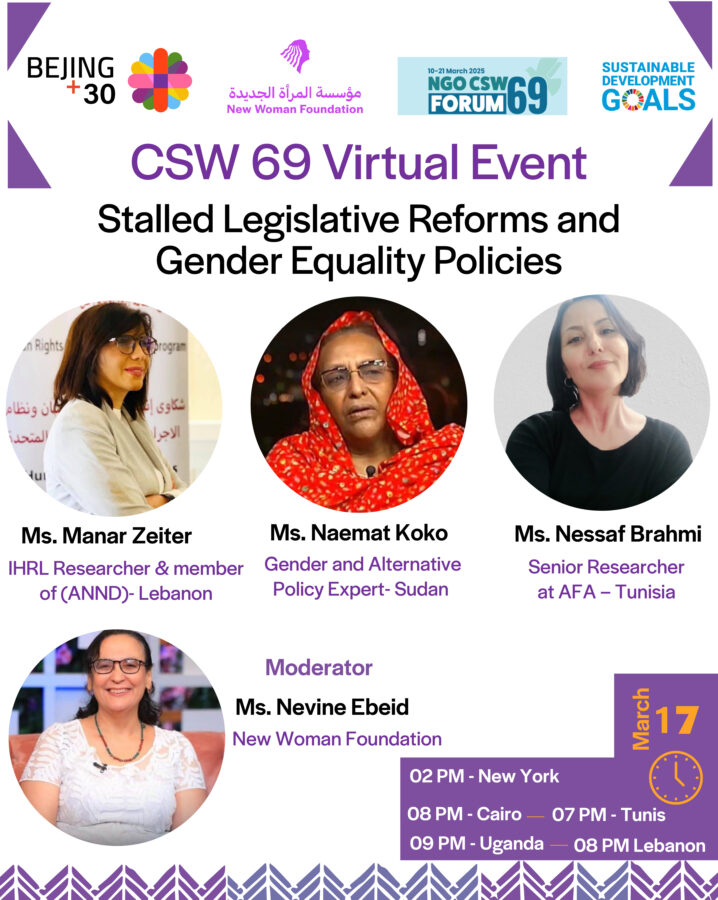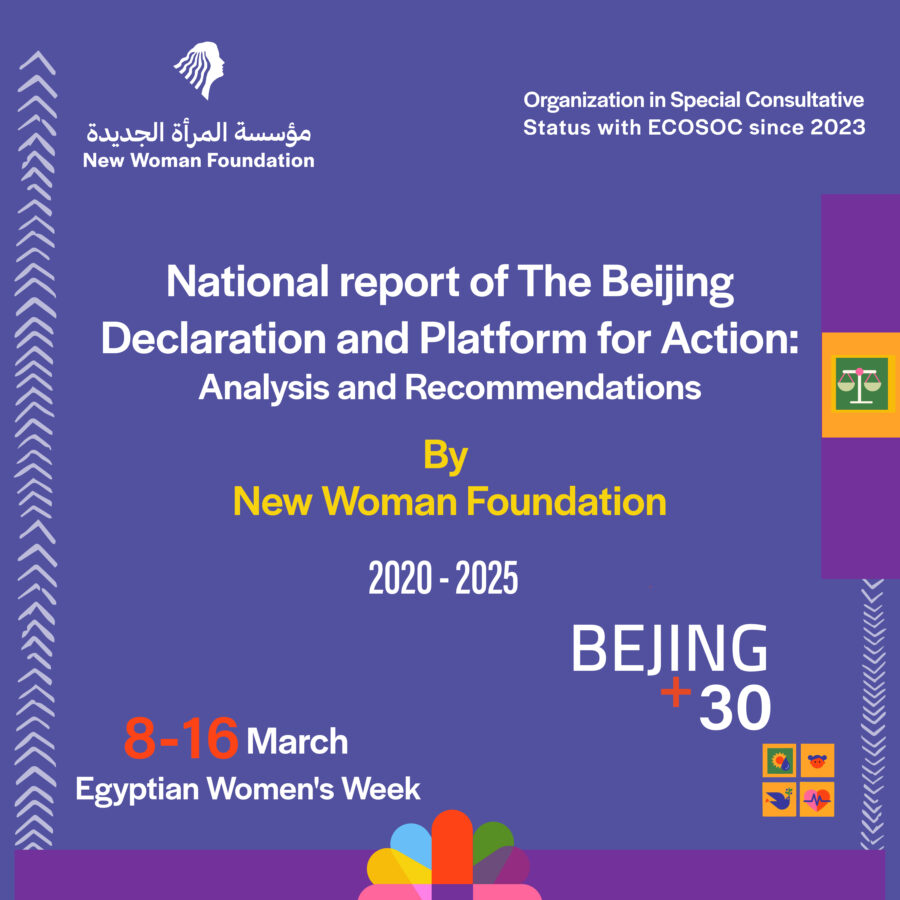- Contact Us
- 0020233382706
- nwrc@nwrcegypt.org
Personal status laws – Feminist testimonies from Egypt

Politics as a path – Feminist testimonies from Egypt
March 15, 2017
Bodily rights – Feminist testimonies from Egypt
April 2, 2017Mada Masr: Over the years of my long journey working with personal status laws, I’ve experienced many changes on the personal and professional levels, as I continue to listen to stories of women that expose the injustice of laws that back the state in enforcing control of women by men under the pretext of familial unions.
I found the law to give men absolute rights, and to place women on an unequal legal footing. Divorce, for example, is an inherent right of men; they can divorce their wives whenever they want without having to offer justifications. Women, however, are required to justify their request for a divorce. Additionally, they face societal stigma and family pressure, as well as psychological and financial burdens, if they are to demand their rights.
These burdens are multiplied manifold if the woman in question is Christian, and even more so if she is a Christian woman divorcing a Muslim man – a situation in which the age of custody of her children would be reduced from 15 to 6 years old for both girls and boys. The rationale here is that because she’s Christian, the children would be at risk of being influenced by her religion. Women who go on to marry after a divorce risk losing custody of their children altogether, which drives many women to seek unofficial marriages and which, in turn, subjects women to losing legal rights that would have been guaranteed through an official marriage contract. My vision for the change and the implementation of a draft for a just personal status law for Christians would require another article, however.
Existing laws that are intended to protect women are not applied either. For example, the law that raises the age of marriage (to 18 years old in accordance with the Convention on the Rights of the Child) is not enforced. The official discourse, through the state’s different institutions, is not supportive of this law. The result is that child marriages continue and young girls are forced to abandon their education and bear children. I’ve met many child mothers who came to hate their children, as well as themselves, as a result of being forced into marriages.
I have also failed many times at protecting these girls. I have now become certain that protecting them is not only an issue of introducing a law, but that the law is just one tool among many others that must be employed. A plan should be devised to ensure that the values of these laws are reflected in society and to ensure that social and cultural mores that confine the value of women and girls to their marriageability are replaced.
These are some models I worked on and battles that I have gone through in my attempt to change personal status laws for Muslim and Christians. In light of this, I am particularly proud of the experience with the Center of Egyptian Women’s Legal Assistance (CEWLA), because we addressed the importance of developing Islamic jurisprudence and the need for new interpretation based on jurisprudence anchored in reality, need and crises. Many jurists were initially shocked by such a proposal, refusing to amend opinions of past jurists. In fact, many feminist organizations rejected it as well, refusing to tie women’s issues to religious opinion.
The truth is that CEWLA started a powerful dialogue on the purposes of Islamic Sharia, and their reflection on women’s issues, the need for changing the laws, the need for a strategy to end discrimination against women, which helped create the start of a societal culture that protects and augments the rights of women and girls.
It became clear to me in my journey, that the state doesn’t take issues of women seriously. When addressing the outside world, the state claims its commitment to the implementation of UN-issued recommendations to end discrimination against women (CEDAW), both in its review of the 2010 report and in the recommendations issued by the Human Rights Council in the Universal Periodic Review of human rights of 2014. The majority of these recommendations relate to discriminatory laws, including personal status laws for Muslims and Christians. Moreover, the state claims to have engaged feminist associations and organizations as well as imams, clerics and the media in its process of change.
Domestically, and in stark contrast to its international approach, we find that the state allows for media and religious discourses that degrade the dignity of women, and maintains a legislative philosophy that restricts women’s rights. When discussions arise about the state’s lack of legal obligation to uphold human rights or women’s rights, the state stays silent. It also stays silent when discussions arise about the contradiction of these agreements with Sharia, culture and traditions. In fact, the official discourse adopted by the state sometimes contributes to inflaming public opinion against these agreements, while also adopting hate speech and distorting the image of feminist organizations that demand the implementation of Egypt’s international obligations.
Moreover, religious institutions usually lack the courage to raise the issue of personal status laws. They don’t present new efforts or ijtihad (an Islamic legal term referring to independent reasoning, which was a central element of the early development of Islamic jurisprudence) that would be suitable for the needs of society and they don’t strive to augment the purposes of Sharia. Religious institutions are more ferocious and tough on women’s issues because, compared to other political or economic issues (such as bank interest for example), the cost is seen as low.
Azza Soliman



